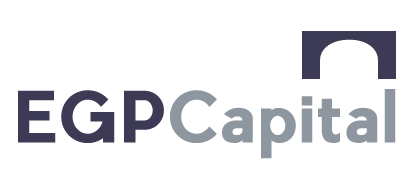Inefficiencies exist in virtually all markets. I have said before in these pages that EMH (Efficient Market Hypothesis) is approximately right and getting more correct with each passing year. In the information age in which we live, pricing inefficiencies tend to be corrected fairly quickly.
There do exist, however opportunities and I exploited one (in a very small way) last Sunday. I hold an account with Betfair, the account sits idle for most of the year, but around Grand Final season, I sometimes have a small bet on a game to add some excitement and the account is held primarily for placing a few bets on major racing events such as the Melbourne Cup, and others in the Spring Carnival, coming up soon.
Betfair is a ‘betting exchange’, in simple terms they match someone who is willing to bet on an event with someone who is willing to bet against it, instead of profiting by ‘beating’ the gambler, they clip a percentage fee of the winners profit.
I populated the account with money a few years ago and have periodically transferred cash out of the account when the balance grows too large. By being extremely selective in the wagers I have placed, I have had the good fortune to generate a handsome return on the original funding (an aside – gambling is an insidious thing that has a massive negative overall impact on society, like any behaviour that has compulsive tendencies, a great number of the persons who engage in the behaviour will have unhappy outcomes).
In the early afternoon of Sunday, I heard the odds for the ‘Clive Churchill Medal’ (the ‘Man of the Match’ for the NRL Grand Final) called on TV and discussed the likely winners with the other persons in my house to watch the game. The advertised odds seemed short, so I fired up the Betfair account to see if they were any more generous. The odds, as usual were around 20% better than the major agencies, so a player offering $11 to win on the major betting agencies was probably offering $13 on Betfair. I had no strong view that any likely winner was being mispriced (I really only like to wager when I feel the odds are unnaturally stacked in my favour), so I was not going to bet, when I noticed the anomaly that gave rise to this post.
Michael Ennis, the Bulldogs captain, who had broken his foot in the previous weeks encounter and consequently been ruled out of the Grand Final through injury was being offered for the ‘Lay’ at $80. This means someone had offered to ‘Back’ him to win the Clive Churchill at $80. It was only a $22 bet, which would have led to a profit of over $1,600 had Ennis won the medal, but I surmised that he was no more likely than I to win the medal, given neither of us would be playing the Grand Final.
Now I did not have enough money to take the whole bet (I’m not some sort of degenerate gambler!) but I was happy to risk what small money was in the account. The profits were credited to the account just a few hours later.
The share market oftentimes allows similar opportunities, people allow their personal prejudices, political views, predilections and preferences to colour their decision making. The most common way someone who trades in the less liquid end of the market (such as EGP) is to act swiftly when someone who has had a standing offer in the market that is brought cheap by new information. The intelligent investor stands ready to profit when such opportunities present – Tony Hansen 10/10/2014
|
|
Apr 1st 2011 |
Jul 1st 2014 |
Current Price |
Current Period |
Since Inception |
|
EGP Fund No. 1 |
1.00000 |
1.56145 |
1.56207*1 |
0.04% |
70.52%*2 |
|
35632.05 |
45991.23 |
44816.69 |
(2.55%) |
25.78% |
EGP Fund No. 1 Pty Ltd. Up by 0.04%, leading the benchmark by 2.59% since July 1st. Since inception, EGP Fund No. 1 Pty Ltd is Up by 70.52%, leading the benchmark by 44.75% all-time (April 1st 2011).
*1 after 31May 2013 dividend of 2.333 cents per share plus 1.000 cent per share Franking Credit & 31 May 2014 Dividend of 7.000 cents per share plus 3.000 cent per share Franking Credit
*2 calculated based on dividends reinvested
